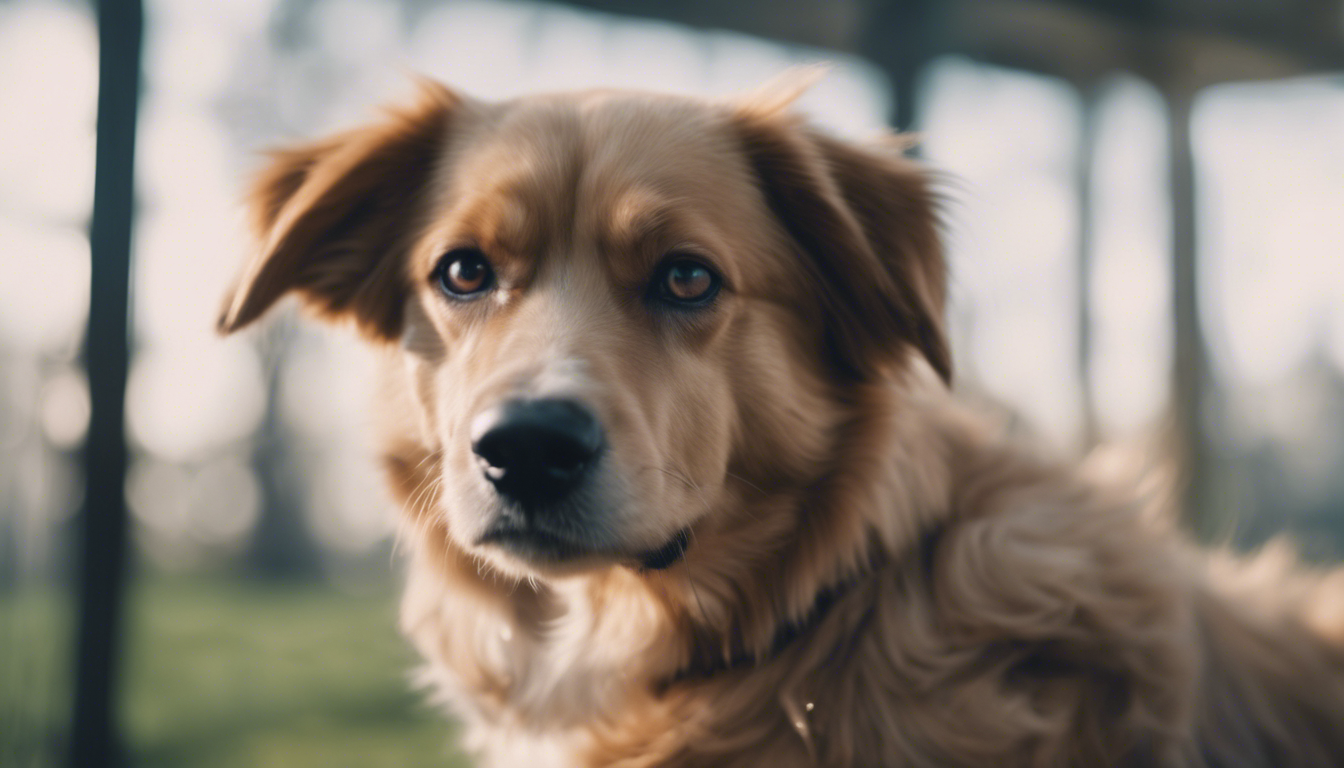The Role of Genetics in Your Dog’s Health and Behavior

Genetic Predispositions to Health Conditions in Dogs
Just like people, dogs are often at the mercy of their genetics when it comes to their health. It’s fascinating to see how the wag of a tail or the perk of an ear is passed down from one generation to the next, but with those adorable traits can come certain predispositions to health conditions that are important for any dog owner to be aware of.
For instance, some breeds are notorious for hip dysplasia, a painful joint condition that can severely affect a dog’s mobility. Breeds like German Shepherds, Great Danes, and Labrador Retrievers have much higher risks for this condition, while other breeds might be genetically predisposed to hereditary heart conditions or certain types of cancer. Bulldogs, for example, often struggle with respiratory issues due to their brachycephalic (short-nosed) faces.
Diet and exercise are crucial in managing the risk of these inherited conditions. Proper nutrition tailored to your dog’s breed and size can help maintain a healthy weight, reducing the strain on their joints and heart. However, it’s not just about the food bowl or the walking route; regular check-ups with the vet are vital in detecting any signs of genetic health issues early on. Early detection can mean a world of difference in treatment options and outcomes.
Speaking of treatments, medical advances have been a game-changer for pooches prone to inherited diseases. Hip dysplasia, for instance, may be managed with anything from anti-inflammatory medications to physical therapy, and in severe cases, surgical options are available. And while some conditions might not be curable, many are manageable with the right combination of medication, lifestyle adjustments, and tender loving care.
Dental care should be part of your furry friend’s routine since periodontal disease can lead to more serious systemic problems. Brushing your dog’s teeth or providing dental chews can help maintain those pearly whites and avoid further complications.
As dogs age, they face an increased risk of developing various ailments, some of which might be tied back to their genes. Sighthounds, for instance, could be prone to vision problems as they get older, while smaller breeds like Dachshunds often suffer from back issues due to their elongated spines. Keeping an eye on your dog’s behavior and physical condition as they age is essential in catching and managing age-related health changes.
Mental stimulation keeps a dog’s mind sharp, which is important not only for their mental well-being but also for their overall health. Puzzle toys, training sessions, and social interactions help prevent cognitive decline, which is essential regardless of breed or genetic makeup. It also helps reinforce positive behaviors and can be a great bonding experience for you and your dog.
Embracing preventive care, like vaccinations and regular parasite prevention, can help protect your dog from a slew of health issues, some of which could exacerbate inherited conditions – an important step in boosting your dog’s chances of a long, healthy life.
Ultimately, knowing and understanding the genetic health risks associated with your dog’s breed allows you to be more proactive about their health. An ounce of prevention is worth a pound of cure, especially when it comes to the well-being of your loyal companion – laying the foundation for a life full of tail wags, wet kisses, and happy, healthy years together.
The Influence of Breed on Canine Temperament and Intelligence
Every dog has its day, and every breed has its own unique set of characteristics when it comes to temperament and intelligence. Spaniels might allure you with their boundless enthusiasm, while a Greyhound will likely prefer lounging on the couch to retrieving sticks. It’s this wonderful variety that draws us to our four-legged friends, but it’s also something to bear in mind when it comes to their care and training.
Take the Border Collie, for instance, a breed that’s often hailed as one of the most intelligent. With this intelligence comes a need for mental engagement; without it, they can become bored and develop destructive behaviors. These dogs thrive on puzzles, obedience training, and agility courses. They need an owner who can provide plenty of opportunities for mental stimulation.
On the other end of the spectrum, we have the laid-back Bulldogs, who prefer a good snooze to a game of fetch any day. They may not require the mental gymnastics that a Border Collie would, but they do need their own form of stimulation and, importantly, regular exercise to prevent obesity—which can be a serious risk for the breed.
When it comes to Australian Shepherds, there’s a spunk and a sharp intellect that requires a devoted, energetic owner up for the challenge. Engaging their brains with herding or frisbee can go a long way in keeping them happy and healthy. Similarly, hounds like the Beagle, bred to sniff and track, may not find a standard backyard as entertaining as a scent trail or nose work games.
But it is not just about keeping their minds busy; each breed’s temperament can influence their physical health in more subtle ways as well. Take the super social Labrador Retriever—prone to anxiety when left alone for too long, which can lead to stress-related health issues. Keeping such breeds occupied with interactive toys and ensuring they get enough social interaction can help mitigate these risks.
Of course, intelligence and temperament are one thing, but each breed also has its own specific health care needs. Some breeds have sensitive stomachs or skin allergies and require specially formulated diets to keep them in top condition. Others have coats that need regular professional grooming to prevent skin problems.
It is also worth mentioning that while intelligence is a sought-after trait, smarter isn’t always better when it comes to training. Sometimes, what we perceive as stubbornness could simply be a dog’s independent thinking, which some breeds possess more than others. Understanding and embracing these traits can make training more effective and enjoyable for both dog and owner.
Striking the right balance between physical exercise, mental engagement, and preventive health care can make all the difference. Whether your dog is a sprightly Jack Russell Terrier or a stately Saint Bernard, catering to their breed-specific needs will keep them happier, sharper, and more engaged with life—ensuring that every day is indeed their day.
Inheritance Patterns of Behavioral Traits in Dogs
If you’ve ever watched a puppy grow and thought, “He’s just like his mother,” or “He’s got his father’s stubbornness,” you’re witnessing the fascinating world of inheritance in action. The apple doesn’t fall far from the tree, and in the dog world, behavioral traits often follow suit. Ponder of the herding instinct in an Australian cattle dog or the unshakable focus of a pointer on the hunt; these behaviors run deep and are a testament to their lineage.
Canine behavior isn’t just shaped by upbringing; it is encoded in a dog’s DNA. Those ingrained instincts that drive a terrier to dig or a retriever to, well, retrieve, are passed down from their ancestors. This doesn’t mean that every dog of a certain breed will exhibit textbook traits; there’s room for personality and individual quirks, but the blueprint for their behavior is inherited.
One fascinating aspect of behavioral genetics in dogs is how certain traits can skip generations or combine in unexpected ways. For example, a calm and quiet dog might produce a litter with a pup that’s a bundle of energy, bringing forward a trait from a grandparent or great-grandparent. This can often surprise owners who expected a carbon copy of the parents’ behavior.
A deep dive into a dog’s ancestry can sometimes explain their fear of thunder or love for water. These quirks aren’t just random; they’re etched into a dog’s genetic makeup. Responsible breeders often study the behaviors of a dog’s forefathers to predict patterns and dispositions in their puppies. It’s an intricate dance of nature and, occasionally, nurture plays a role. A puppy’s environment and experiences will certainly shape its personality, but its genetic tendencies often set the overall tone.
Mental stimulation and training are essential, not only for a well-behaved companion but to keep these inheritable traits in check. A sheepdog with no sheep to herd might find other ways to channel that behavior—like herding children or other pets—which might not always be welcome. Understanding that these behaviors come from a place of instinct can help owners redirect them in positive ways.
That is where the beauty of rescue dogs shines. A mixed breed might have an unpredictable combination of traits inherited from their diverse lineage, sometimes resulting in a wonderfully unique pet. Their behaviors might be harder to predict, but they can also be less intense than those found in purebred dogs where traits have been strongly selected for.
So much of what makes a dog joyfully canine is passed down from generation to generation. Their genetic legacy is more than just the color of their coat or the shape of their ears—it’s their zest for life, their protective nature, or conversely, their gentle disposition. It’s the unseen thread connecting them to their ancestors and defining many of the things we cherish most about them.
As dog owners, it’s both a privilege and a responsibility to nurture our dogs’ inherited traits and ensure they’re expressed in healthy and fulfilling ways. After all, these behaviors are part of what bonds us to them, ties them to a broader canine community, and keeps life with them endlessly intriguing.
Managing and Mitigating Genetic Health Risks through Responsible Breeding
Responsible breeding stands as a cornerstone in the fight against genetic health issues in dogs. It begins with thorough genetic screening and health testing of breeding candidates, pinpointing potential hereditary health risks before they can be passed to puppies. A fantastic example is the dedication of many Golden Retriever breeders who test for common conditions such as hip dysplasia and heart defects to minimize the transmission of these afflictions to the next generation.
Beyond screening, responsible breeders carefully select mates, aiming to improve the breed by reducing the likelihood of inherited diseases. A conscientious breeder will dive into a dog’s family tree, not just for champions and ribbons, but to understand the health legacy being passed down through the lines. This may mean retiring certain dogs from the breeding program, a tough but crucial decision for the well-being of the breed’s future.
Furthermore, responsible breeders don’t rush the process; they give breeding dogs ample time between litters to recover and ensure that a dam’s health isn’t compromised by continuous breeding. They also adhere to recommended breeding ages to prevent health issues brought about by either immature or advanced age breeding.
After the pups are born, health screenings shouldn’t stop. Observant breeders track the puppies as they grow, watching for any signs of inherited issues. This vigilance helps in identifying and managing any emerging conditions early on. After all, the reputation of a breeder is closely tied to the health and happiness of their puppies.
In educating new owners, responsible breeders share a wealth of knowledge regarding breed-specific care. They provide guidelines on exercise, diet, and the importance of mental enrichment, all tailored to the breed’s unique requirements. This proactive approach extends to suggesting regular veterinarian check-ups, ensuring vaccinations and parasite prevention are up to date, and reinforcing the habit of annual health screenings for long-term well-being.
It is worth noting that responsible breeding also includes a commitment to the dog for life. Many breeders stipulate that they will take back dogs at any stage of their life if the owner can no longer care for them. This practice helps prevent dogs from ending up in shelters and falling victim to a cycle that can exacerbate health issues and introduce new ones.
As dog lovers, we all play a role in promoting responsible breeding practices. By choosing to support ethical breeders who prioritize health, temperament, and the betterment of the breed, we indirectly help in maintaining canine health standards and ensuring that every pup has the chance for a happy, healthy life. Through responsible breeding, the future of many beloved dog breeds can look brighter, free from the shadows of preventable hereditary conditions.







